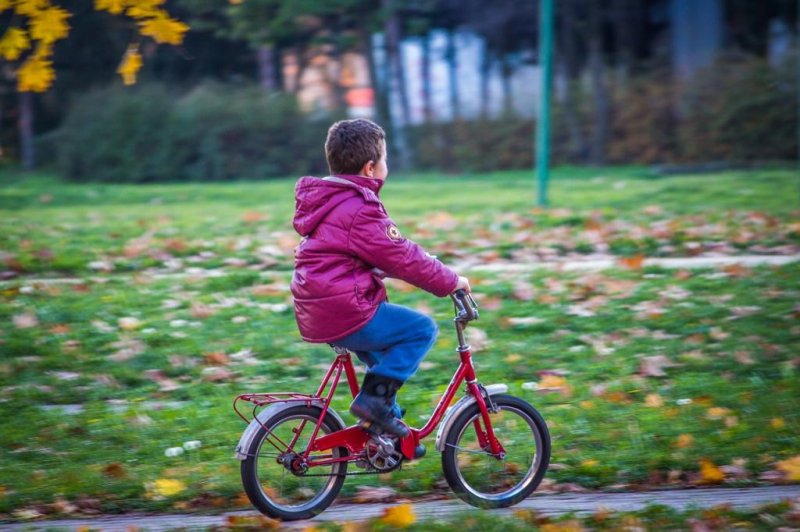Exercise can improve behavioral regulation in children in different ways, depending on their age, according to new research. Photo by
besnopile/Pixabay
May 19 (UPI) -- Children who are more physically active may behave better, exhibit more self-control and perform better in school, according to a study published Wednesday by PLOS ONE.
A direct correlation exists between physical activity, as measured by a wearable device, and emotional regulation, or the ability to control emotions, in children ages 7, 11 and 14, the data showed.
Although the same relationship did not exist between exercise and behavioral regulation -- a person's ability to resist unhealthy habits -- the improvements seen in managing emotions among 7-year-olds in the study had a positive effect on academic performance, the researchers said.
"Even giving children less-structured opportunities to run around outside could be of real developmental importance," study co-author Michelle Ellefson said in a press release.
"We really need to ensure that physical activity does not become an area schools feel they can legitimately sacrifice to drive up academic attainment [because] it has a crucial part to play," said Ellefson, a lecturer in cognitive science at the University of Cambridge in England.
Children and adolescents ages 6 to 17 should engage in 60 minutes or more of moderate to vigorous physical activity each day, according to the Centers for Disease Control and Prevention.
This can include aerobic activities that strengthen bones, such as running or jumping for three days per week, as well as muscle-building strength exercises, such as climbing or doing push-ups three days per week, the agency recommends.
For this study, Ellefson and her colleague, Fotini Vasilopoulo, assessed the physical activity of more than 4,000 children ages 7, 11 and 14 in Britain using a wearable accelerometer -- a device that measures movement and vibration.
Parents and teachers filled out questionnaires to measure the emotional and behavioral regulation skills of the children in the study.
A greater degree of physical activity was linked with higher emotional regulation skills, but not behavioral regulation skills, in children of all three ages.
For 7-year-olds, increased physical activity positively predicted better emotional regulation skills, which contributed to improved academic achievement throughout early primary school.
For 11-year-olds, physical activity appeared to positively impact academic achievement due to improvements in their behavioral regulation.
However, when the researchers accounted for the children's socioeconomic status, physical activity was linked with lower emotional regulation and had a negligible effect on behavioral regulation, the researchers said.
The findings indicate that early and sustained physical activity is an important element in children's development and schooling, they said.
Although it is difficult to evaluate childhood risks for poor academic achievement as illustrated by the influence of their socioeconomic status, the study demonstrates the importance of ensuring that children have access to multiple forms of physical activity, particularly those living in less-advantaged settings, the researchers said.
"The attainment gap is a really complex problem, but we know that some of it is linked to less-advantaged children having poor self-regulation skills early in childhood," Vasilopoulo said in a press release.
"Physical activities that help them to do things like focus on a task or maintain attention could be part of the way to bridge that gap," said Vasilopoulo, a specialist in children's yoga and behavioral counseling based in London.















